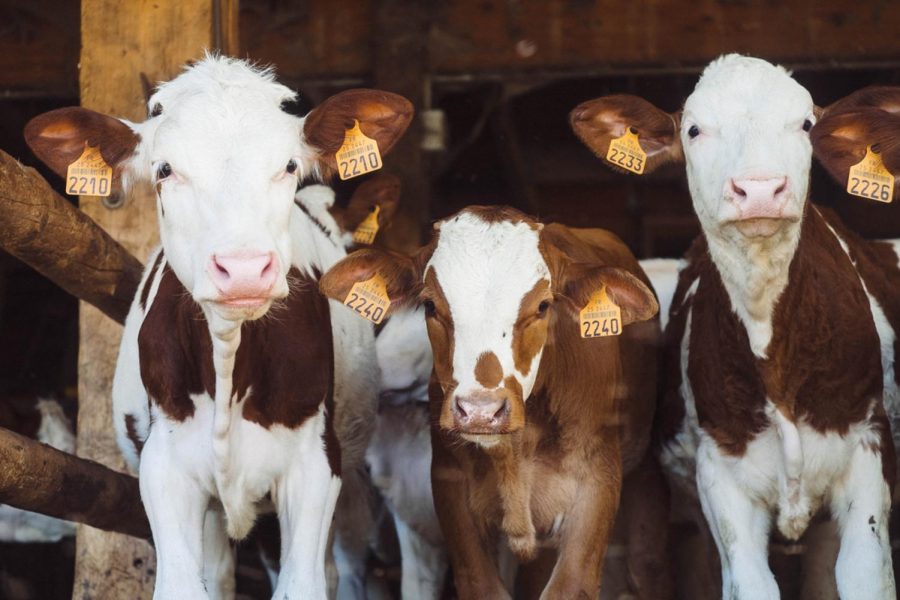In Defense of Meat, Dairy, and American Agriculture
Disclaimer: This is an opinion piece. It is not meant to attack vegetarianism or the animal welfare movement, but it is critical of some arguments found within those movements.
Last week, an article was published by The Spur titled “The Products I Boycott.”The article has a good message: be critical of the products you consume. However, I disagree with some of the arguments presented, particularly those regarding animal welfare.
The first issue is the negative generalization of animal welfare on farms. Not all farms operate the same way, and not all farmers are obsessed with squeezing every last dollar out of their farms at the expense of their animals.
Take, for example, dairy production. 98% of the U.S. Milk Supply comes from farms that participate in Farmers Assuring Responsible Management (FARM) Animal Care Programs. FARMis a program which evaluates and assures certain standards among its participants, including animal welfare, product quality, and workforce education. In 2018, FARM was recognized by the International Organization for Standardization for its animal welfare standards (nationaldairyfarm.com). Farmers across the country really do care about their animals.
Dairy is also an important part of many people’s diets. This is not to say that it is essential – lots of people live without milk, of course! – but it provides many of the nutrients we need at a lower cost than popular replacements. According to WebMD, milk contains calcium, potassium, vitamin D, and protein, all of which are essential to proper health.
Just like the dairy industry, the meat industry in the United States is heavily regulated, and animal welfare is taken seriously. The Food Safety and Inspect Service (FSIS) inspects packing plants nationwide to ensure that plants meet the standards set by the Humane Slaughter Act of 1978. The meat industry itself undergoes voluntary efforts to improve animal welfare by sharing information and hosting an annual conference dedicated to animal welfare. Farmers really do care about the fate of their animals, and slaughter is taken seriously.
Just like dairy, meat is an important part of many people’s diets. Meat is an important source of protein, and, for many people, it is one of our main sources of vitamin B12. It can still be replaced, of course! However, it is difficult and expensive to replace the protein one finds in meat. According to the UK’s National Health Service, redand processed meat may be linked to certain types of cancer. However, they still attest that meat is a part of a healthy diet, and those concerned about the health effects of red, processed meat can switch to other, less fatty meats.
Lastly, I’d like to point out that animals are not humans, and the suffering of animals, while reprehensible and opposed by just about everyone, does not, in anyway, compare to the suffering of real humans. This may seem obvious, but the article that I am responding to calls the “screams of people being gassed and the sound of a pig gas chamber… hauntingly similar.” Comparing the slaughter of pigs to the Holocaust creates a false equivalency that equates humans with animals. The slaughter of pigs for food is in no way comparable to the genocide of two-thirds of the Jewish population in Europe. Shocking, provocative language does not have a place in reasonable debate, and an argument should be based on facts before everything else.
North American Meat Institute: Animal Welfare in Packing Plants


